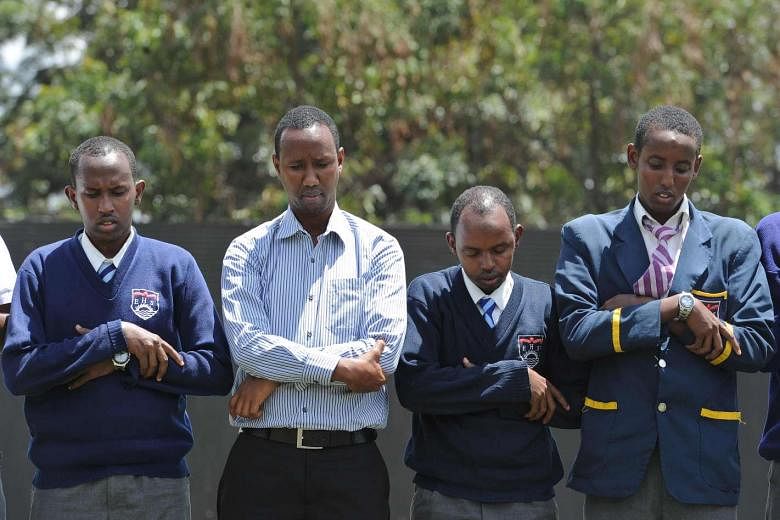Kenyan teacher Ayub Mohamud teaches at a school in an inner-city Nairobi neighbourhood identified as a recruiting ground for Islamist militant group Al-Shabab.
Kenya has, in recent years, been hit by terror attacks by the Al-Qaeda-linked group, which is based in Somalia. For instance, at least 148 people were massacred last April when militants stormed Garissa University College in Kenya.
Mr Mohamud, who is among the 10 finalists of this year's Global Teacher Prize, teaches religious studies and business at Eastleigh High School, situated in a suburb of Nairobi better known as "Little Mogadishu" for its large ethnic Somali community.
And the 38-year-old educator has made it his task to fight radicalisation among his Muslim students by creating safe spaces for them to discuss their religion.
"It is a great concern and challenge due to the high number of students who are recruited by extremist groups embedded in the community," he said.
"Also, youth becoming terrorists disturbs me as a teacher."
Mr Mohamud highlighted how education can have a strong influence on the choices students make in life and can give them the ability to reject radical ideologies.
In his classes, he strives to help students understand the correct teachings of Islam, and compares them with ideologies raised by extremist groups.
"Out of my lessons, students have developed critical thinking skills and confidence," he added. "Many of them are now supporting youth at risk in their communities to reject extremist demands."
Outside the classroom, Mr Mohamud is also active in trying to combat extremist views. For instance, he has started an anti-terror initiative called Teachers Against Violent Extremism, a network of teachers facilitating classroom dialogues to dissuade youth from violent extremist ideologies.
He has also helped implement engagement programmes in Kenyan schools and developed a lesson plan for teachers on how to incorporate anti-radicalisation messages into subjects such as Islamic studies.
Besides tackling radicalisation and extremism, Mr Mohamud inculcates in his students skills to become social entrepreneurs, so that they can be self-reliant after finishing school.
He said teachers can be role models for their students, but noted the lack of support for education and the poor pay of teachers in Kenya.
"Limited facilities to support learning, coupled with frequent teacher strikes, also create a scenario where students perform dismally in exams," he added.
"If teachers are recognised and honoured, many others will join the profession."
Calvin Yang
Creativity and independent thinking, built with Lego bricks


